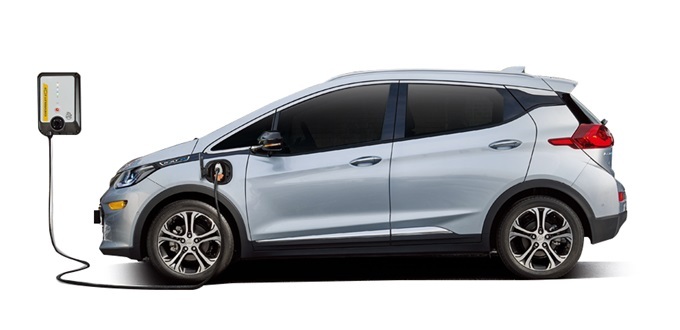LG
LG Chem, GM deal ups ante in EV battery competition
The recent announcement for a joint venture between South Korean battery maker LG Chem and US carmaker General Motors has upped the ante in the global competition to secure lithium-ion batteries for electric vehicles, according to industry sources on Dec.8.
The 2.7 trillion won ($2.3 billion) joint venture for an EV battery factory with production capacity of over 30 gigawatt hours per year in Lordstown, Ohio, was clinched amid GM’s ongoing transition from combustion engine cars to electric vehicles as well as other automakers.
It is the second partnership between GM and LG in the US, following their first one in Holland, Michigan. It also marks the biggest joint venture deal among similar ones between other carmakers and battery firms.
 |
“The new facility will help us scale production and dramatically enhance EV profitability and affordability,” said Mary Barra, chairman and CEO of GM.
The new factory is scheduled to break ground in mid-2020 and start its operations in 2021.
By 2023, GM plans to introduce a total of 20 electric models, including a battery-powered truck in the fall of 2021.
“For GM, the latest investment was based on a strategic judgement that a large-size production facility is necessary to win in the EV market with a stable battery supply,” said an LG Chem official.
GM’s European rivals are also making increasing investments in their EV projects.
Germany’s Volkswagen has announced a total of 78 trillion won investments in producing 75 electric models and 60 hybrid models for the next five years.
Swedish carmaker Volvo has said it will halt production of combustion engine cars next year and all of its new cars will go electrified with an aim to launch five battery-run models by 2021.
BMW and Mercedes-Benz both are planning to spend tens of billions of euros on EV development and production, too.
As the automakers accelerate their shift from combustion engine cars to electric models, the EV battery market is forecast to witness a rapid growth.
According to a report by Samjong KPMG, around 12 million electric vehicles are expected to be sold worldwide by 2025, up from 1.98 million units last year.
In line with the EV market growth, the large-size lithium-ion battery market is estimated to grow from 15.1 trillion won in value last year to 95.8 trillion won by 2023, cited a report by Mirae Asset Daewoo Securities.
For the past one year, the EV battery market grew approximately 60 percent to 25 trillion won.
According to IHS Markit, the EV battery market could even outpace the growth of the memory chip market. In 2025, the memory chip market is estimated to value 169 trillion won, while the battery market is to be around 182 trillion won.
Despite the aggressive investments, the supply of EV batteries could be constrained, market watchers say.
“As battery demand is estimated to surge to 916 GWh by 2023, surpassing an expected supply of 776 GWh, the supply shortage would have automakers engaged in a fiercer race to secure batteries,” an analyst at SNE Research said.
Due to that possibility, automakers are increasingly teaming up with battery firms or preparing to develop batteries on their own.
LG Chem and GM have worked together on batteries for 10 years. The Korean company supplies cells for the Chevrolet Bolt, and the two companies are looking to seize market leadership with the new battery factory.
LG is currently capable of supplying 70 GWh of battery cells a year as it is running five plants worldwide.
By 2020, the Korean company’s annual production capacity will expand to 100 GWh.
“Based on this strategic partnership we grew even closer together and today marks another milestone in General Motors-LG Chem relationship,” said LG Chem Vice Chairman and CEO Shin Hak-cheol.
“The joint venture that we are signing today is more than just a mere collaboration. It marks the beginning of a great journey that will create an emission-free society and transform the global automotive market into an eco-friendly era,” he said.
LG Chem started developing lithium-ion batteries in 1995 and succeeded in commercializing and establishing a mass production system for them in 1998. The company introduced the world’s first light electric vehicle battery in 2004.
By Song Su-hyun/The Korea Herald (song@heraldcorp.com)








